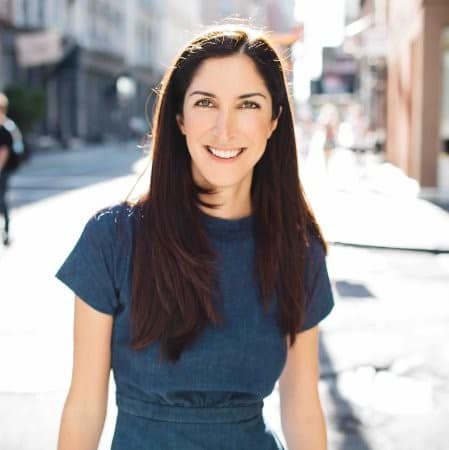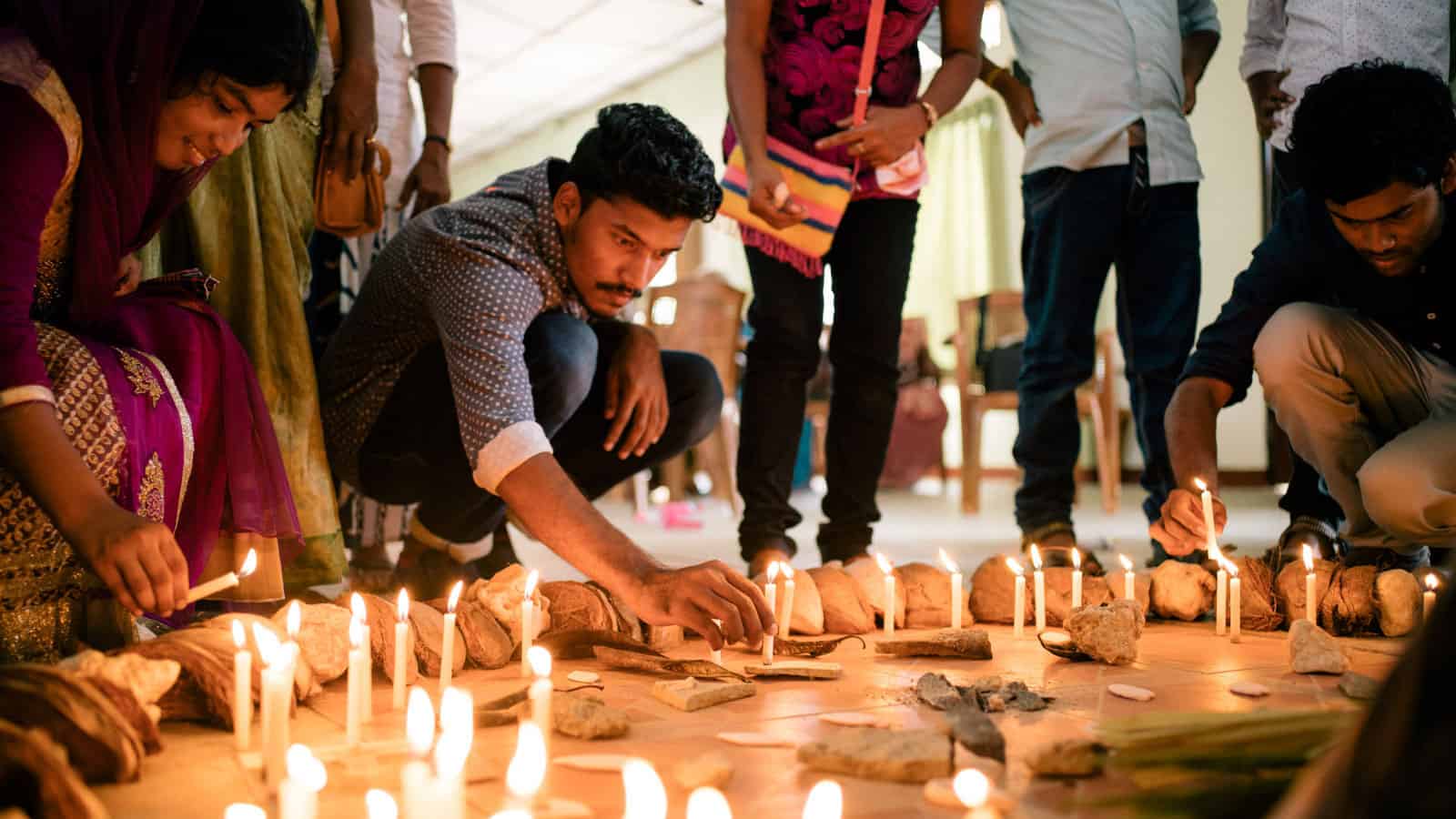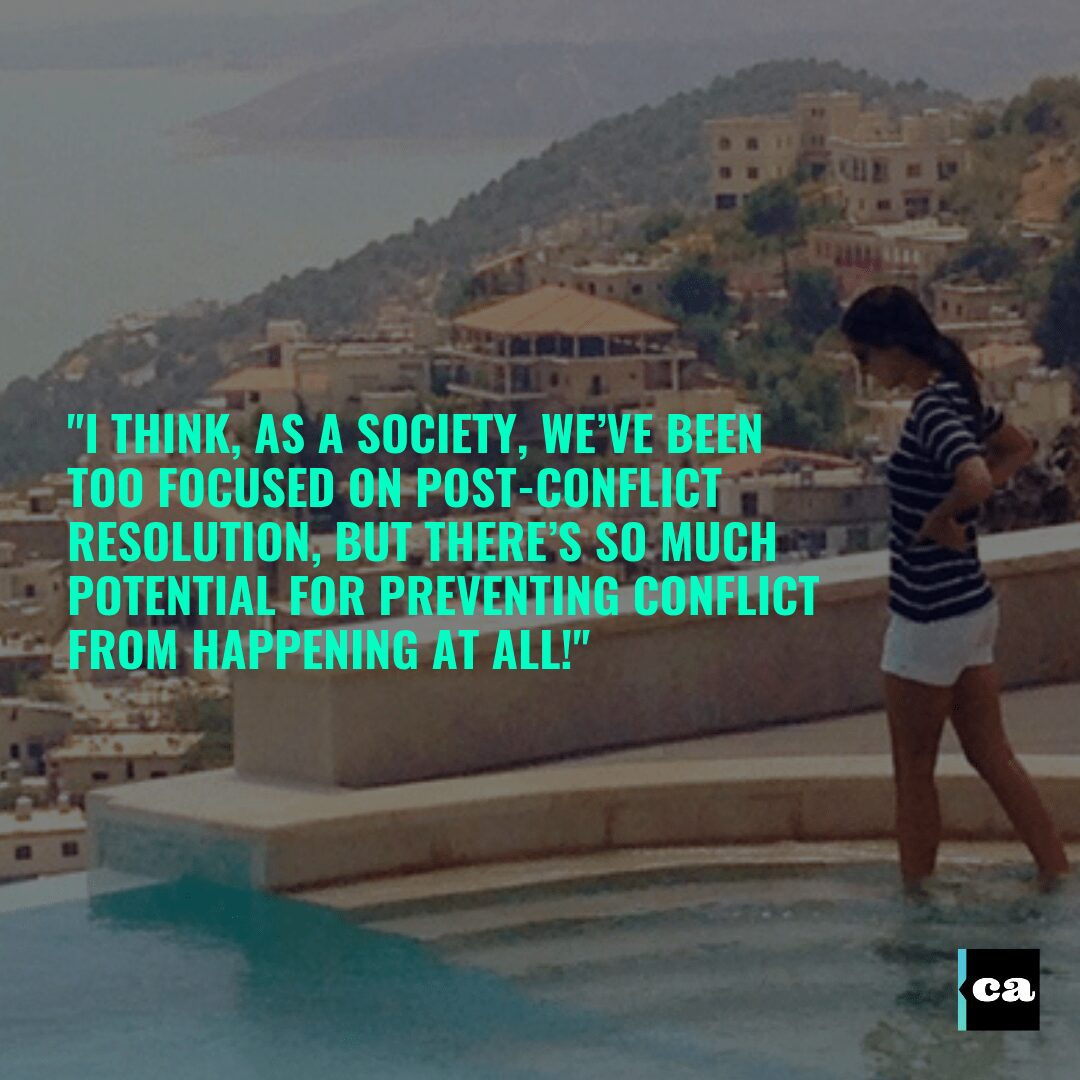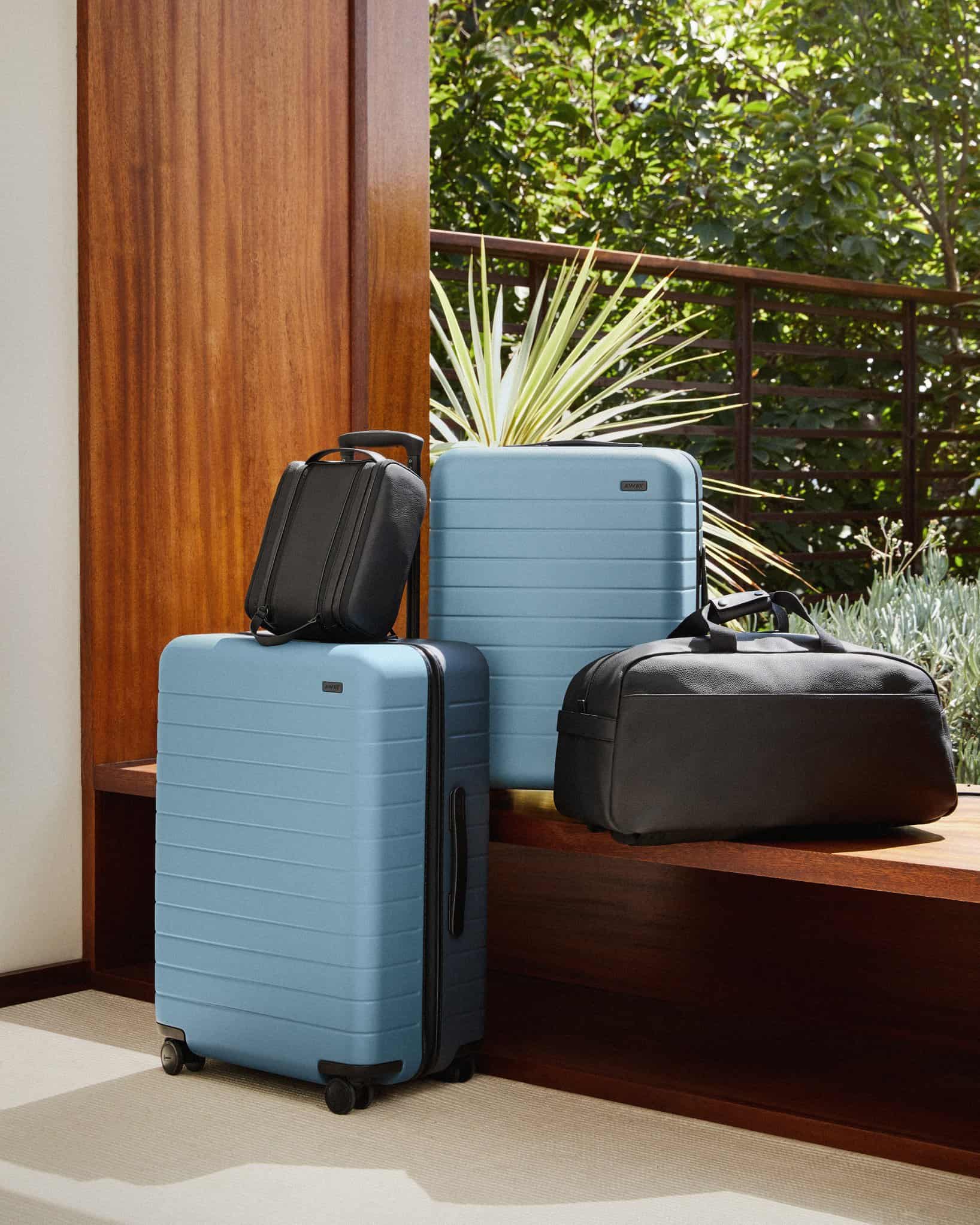Many may know Away Travel from social media and their innovative design that enables the ability to charge your devices straight from their suit of luggage products. What you may not have known is that Away is one of the most socially impactful brands in the world.
Since day one the founders of Away Travel, Steph Korey and Jen Rubio, embedded social impact into their business model. They did this by researching the global landscape of issues to figure out what area they could be most impactful.
For more inspiring interviews check out our Disruptors for GOOD podcast.
After much due diligence, Steph and Jen decided to partner with Peace Direct and bring the idea of peace-building to their brand philosophy and DNA.
The idea was that through travel, humanity is introduced to different cultures and traditions and through these interaction societies can become closer and more connected to each other and eliminate conflict in areas of the globe that have been traditional divided.

Below is an inspiring interview with the CEO and co-founder of Away Travel, Steph Korey, on her journey to use business as a force of global good and connect humanity through travel.
How has travel impacted your life?
My mom was born in Romania and my dad was born in Lebanon, so exposure to different cultures has always been a part of my life. I’m lucky to have had the opportunity to travel so much with my family growing up, and it’s shaped a lot of my perspectives and how I see the world. I love that we can use our brand as a platform to inspire people to do it more often.
Many don’t think of Away Travel as a social impact brand, but tell us about the work you have been doing with Peace Direct.
My co-founder, Jen, and I have always believed it was possible to do well as a business, while also doing good in the world, so we decided to partner with Peace Direct before we sold a single suitcase.
Before partnering with Peace Direct, our team team did a research project to understand the causes that were underfunded but had the potential to have the greatest impact on the world, and which organizations were at the helm of those causes; we landed on peace-building, and Peace Direct. Even though more than two billion people live in areas of conflict today, peace-building is still a term that’s largely unfamiliar to people outside of the development community.

Similar to luggage, we believed we might be able to leverage the storytelling and branding skills of our team to change that. Our model is a bit nontraditional—beyond just monetary giving, our team dedicates our time and expertise to the Peace Direct team, helping to generate awareness for peacebuilding and the work they do.
Ultimately, we believe in the power of travel to break down barriers and improve cross-cultural understanding—Peace Direct is working to do that at the local level every single day, and we’re proud to help them bring those stories to life so that, together, we can make the world a safer place for everyone to live, and to visit.
What was it about Peace Direct that inspired you and Away Travel to get involved?
As a travel brand, we believe that the world is a shared place, and that cross-cultural understanding can make us all kinder, more empathetic people. We were inspired by the work Peace Direct and its partners are doing in areas of conflict all over the world, and knew that by partnering with them, we could bring more attention to peacebuilding and show people that, as a business, you don’t have to choose between doing a good thing and being successful. The two aren’t mutually exclusive.
One of the things that stood out to us about Peace Direct, specifically, is their model. They work to support local people and grassroots organizations in areas of conflict and support them in making their communities places of peace.
For example, they work with an organization called Centre for Peace Building and Reconciliation (CPBR) in Sri Lanka. CPBR created weaving cooperatives in Northern regions of the country that were devastated by the civil war so that women who had lost their families could still support themselves in financially. In Nigeria, they work with the Peace Initiative Network (PIN), an organization that’s created soccer clubs to bring together young men from different religious and ethnic communities to play on the same side, integrating conflict resolution techniques into the training sessions so that they can avoid being recruited by Boko Haram.
Peace Direct doesn’t pretend to have all of the answers, but instead leans on locals to lead the way, and then amplifies their efforts in whatever way will make the most impact.

What is the mission of the partnership between Away Travel and Peace Direct? What do you hope to accomplish?
Through our partnership with Peace Direct, we hope to make “peacebuilding” a term that people are familiar with and care about.
I think, as a society, we’ve been too focused on post-conflict resolution, but there’s so much potential for preventing conflict from happening at all!
I hope that our work to highlight the stories of the peacebuilders around the world can help to shine a light on that potential, and to encourage our community to think of themselves not just as tourists, but as travelers who have the ability to make the world a better place.
Being the Head of Supply Chain at Warby Parker, how did that help you when you started Away Travel?
I was part of the early team at Warby Parker where I worked on product development, manufacturing, and logistics, and afterwards, I consulted for Casper’s supply chain team while I was pursuing my MBA at Columbia Business School. In both opportunities, I saw how the direct-to-consumer model could allow a business to create a premium product at a lower price point by cutting out the middleman and selling directly to customers, so when Jen’s suitcase broke and she couldn’t find a replacement that didn’t cost more than the trip she was planning to take it on, we knew we’d identified a whitespace in the multi-billion dollar industry.

My experiences at Warby and Casper also proved that a brand’s success is determined by so much more than just a great product. People don’t get excited about eyeglasses or mattresses—they get excited about the story those brands are telling. So we’ve built a brand that’s telling a story about travel and all of the place people could go with our products.
What advice would you give other entrepreneurs who want partner with an organization to try and make a real impact on society through business?
Start now, and think beyond just writing a check! You don’t have to wait until you’re able to donate money—instead, just identify the talents of your team and figure out how to leverage those talents to make a positive impact. Your employees will appreciate the opportunity to give back, and your partner will be grateful for the support no matter what shape that might take.
Latest Post
- What are Plant Based Fibers
- 7 Sustainable and Eco Friendly Floss Options
- Anshul Magotra: How Social Innovation Circle Supports Impact Entrepreneurs
- Causeartist Brief – U.S. Department of Energy x Google, Bezos Centers for Sustainable Protein, Oregon Biochar Solutions
- Evidencity: Pioneering the Fight Against Modern Slavery Through Tech







